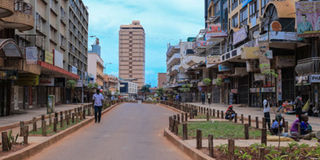Go beyond calming country on Covid-19

With Ugandans having endured more than 75 days of lockdown, the government needs to take more robust measures to pacify the fears and lessen the miseries of wananchi. After the 16th address to the nation, it is no longer enough for the President to say as long as he has the ammunitions, we can fight for as long as Covid-19 poses danger to the country.
Neither is it enough for the President to only say: “There is no panic. We’re testing them [cases]; that is how we discover them. We then follow their contacts thus the additional cases – zero deaths.”
The zero deaths from Covid-19, are occasioning deaths elsewhere from lockdown. The rattling fact is that Ugandans are panicking. The country is counting 457 cases, with Gulu Regional Referral Hospital, planned to host 10 cases of Covid-19, now overwhelmed with more than 67 cases.
Nearby, Lira with 21 Covid-19 cases, has fewer and stressed medics, depressed by registering first cases of health workers infection by Covid-19.
Even more worrying are cases such as of a woman, 72, deep in Unyama on the outskirts of Gulu Town. The old woman contracted the virus from a son who visited from Elegu, on the Uganda-South Sudan border. Just how many more of such cases are we not counting, and are spreading, deep in our rural villages?
Given the wide presence of the coronavirus in South Sudan and Uganda’s long borderline; from West Nile through Acholi to Karamoja, the border residents are right to cry out and call the situation grim.
What Ugandans want from government, which is mandated to secure their lives and wellbeing, is to quickly reset their lives to normal or make them adapt to live with Covid-19. But as things are, survival for many Ugandans is increasingly becoming intolerable.
Millions of youth in the boda boda businesses, plus taxi and bus operators and dependents, are financially distressed. From tomorrow, public transport fares will be raised and Ugandans will have to fork out double the fares they paid before Covid-19.
These hiked up charges will become unaffordable for many Ugandans, emerging from nearly three months of no earnings and heavy spending. Majority of Ugandans have accumulated unpaid utility bills, including for water and electricity.
What the wananchi demand of the President and team is to go beyond tranquillising citizens. They want to see border-crossing as hotbeds of spread of Covid-19 put under lockdown and mass testing undertaken and soaring cases of Covid-19 brought down. Citizens locked out of vulnerable, but critical service economy such as bars, salons and nightclubs want freedom to operate, earn money and be able to put food on the table.




